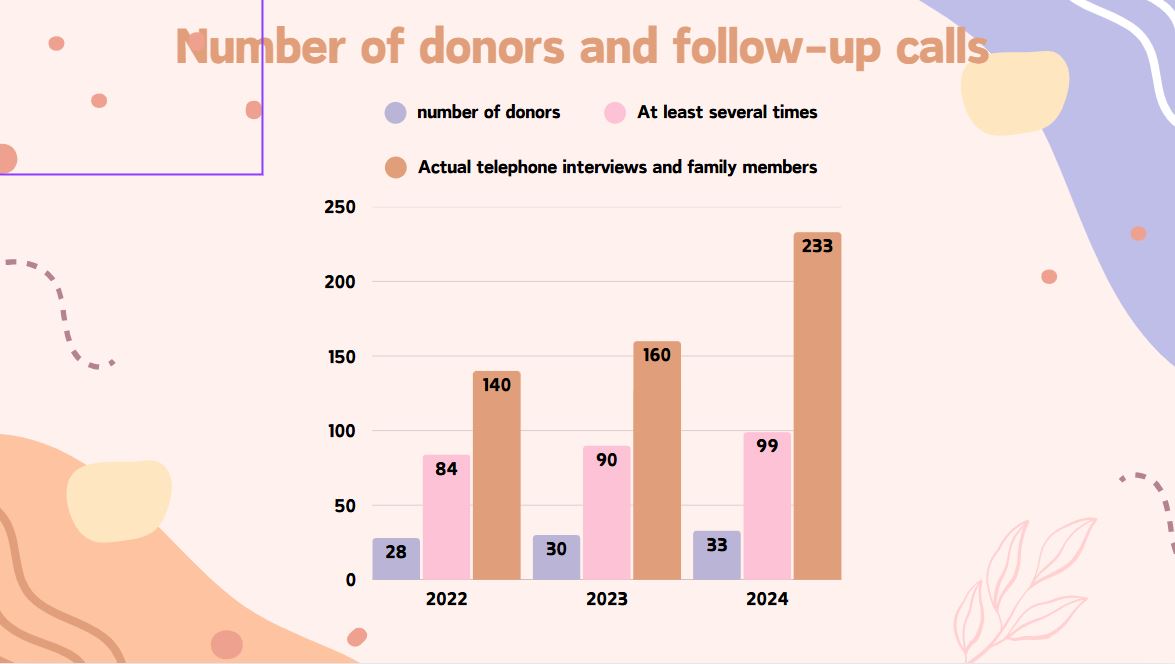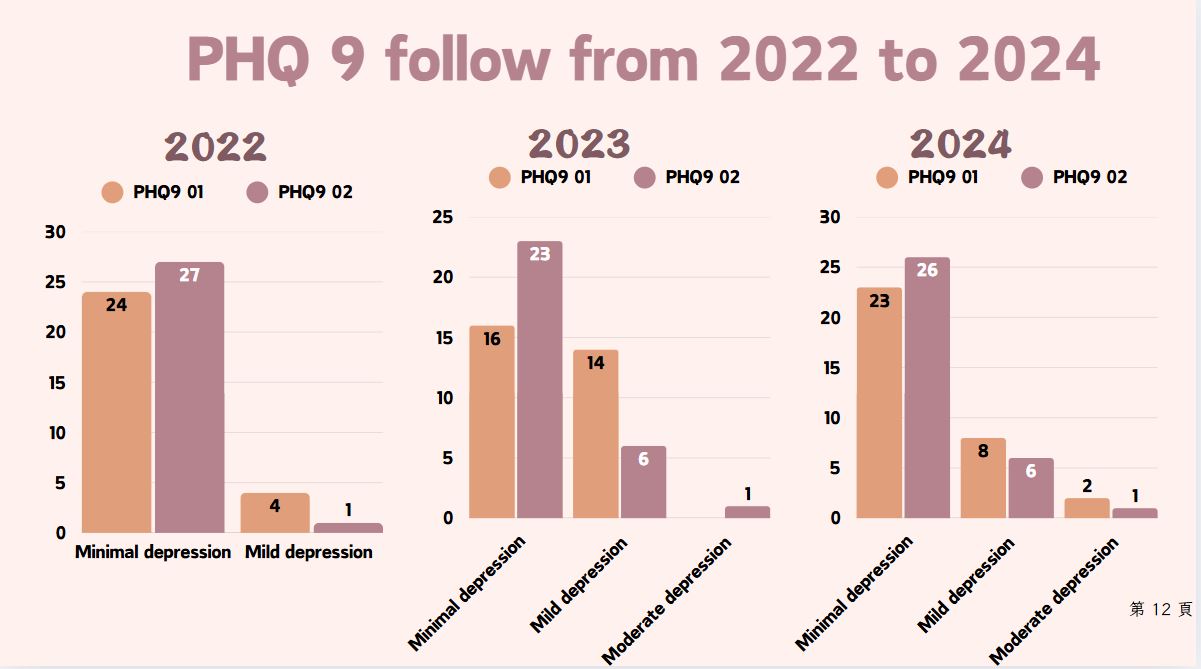Supporting organ donor families through hybrid bereavement care: A practice review on the use of LINE@ and PHQ-9 at Far Eastern Memorial Hospital
Chenchia Ting1.
1Social work, Far Eastern Memorial Hospital of Nes Taipei City, New Taipei City, Taiwan
Introduction: The COVID-19 pandemic brought profound changes to hospital-based social work, especially in bereavement care. Restrictions on face-to-face interaction and limited staffing prompted us to explore digital tools that could help maintain emotional support for donor families. In response, our hospital integrated LINE@, a popular messaging platform in Taiwan, into our bereavement follow-up services beginning in 2021. The platform serves as a flexible extension to traditional support methods such as home visits, phone calls, and in-person memorial events.
While many studies have examined grief counseling and support groups, few have addressed the role of instant messaging platforms in real-life bereavement care. In practice, we observed that grief responses are often nonlinear and may resurface during anniversaries or holidays. To better identify emotional risks, we introduced the Patient Health Questionnaire-9 (PHQ-9) as a mid-term screening tool. This report reviews three years of service experience, combining insights from PHQ-9 assessments and LINE@ usage data to evaluate the outcomes of a hybrid support model for organ donor families.
Methods: This descriptive, retrospective analysis covers the period from 2021 to December 2024. The study focuses on families who had completed the organ donation process and received follow-up services from hospital social workers. Data sources include:
LINE@ usage statistics: broadcast message open rates, feature usage, and chat records.
PHQ-9 depression screenings: conducted 3–6 months post-donation via phone or LINE@.
Family satisfaction surveys: feedback on the accessibility and usefulness of LINE@.
Social work documentation: case notes, emotional assessments, and support group reflections.
Support Model Overview
Our bereavement care model consists of three phases: Short-term support: Provided during the donation process, including bedside presence and emotional support while assisting families through decisions and procedures.
Mid-term support: Conducted 3–6 months after donation, involving PHQ-9 screenings and emotional check-ins via phone or LINE@.
Long-term support: Involves invitations to memorial events and support groups, and ongoing communication through LINE@ for emotional outreach and resource sharing.
Results:
(1) PHQ-9 Screening Outcomes

From 2022 to 2024, our hospital supported 91 donor families, with 85 completing PHQ-9 screenings. The results were consistent across years:
Around 70% scored in the minimal depression range, indicating they had generally regained emotional balance.
About 25% scored in the mild depression range, with some signs of distress but no significant functional impairment.
A small group (<5%) showed moderate or higher levels of depression and were referred for professional counseling.
One notable case in 2023 involved a family member with a PHQ-9 score of 12 who struggled with post-loss adjustment and family conflict. She was referred to a psychologist and later reported improved well-being. In 2024, we began offering PHQ-9 assessments through LINE@, improving accessibility and response rates among younger family members.
(2) LINE@ Platform Usage
LINE@ was implemented as a digital extension of our support system. Key findings include:
87% of donor families within three years post-loss joined LINE@ (79 out of 91 families).
The average open rate for broadcast messages was 70%.
Overall satisfaction was high at 95.8%, with functions such as “financial aid inquiries” and “chat with social workers” scoring 100% satisfaction.
In 2024, the number of one-on-one chat messages reached 2,101, with 44% involving emotional support. These interactions frequently occurred during emotionally sensitive times like anniversaries or holidays. Families appreciated the ability to reach out informally, without needing to schedule a formal appointment.
(3) Support Group Reflections
Since 2018, our hospital has organized small group bereavement events featuring art therapy, gardening, yoga, and memory-making activities. In 2023, nine families participated. Reflections shared by participants included:
Finding meaning: “Organs are like molds. Rather than burning them, it makes more sense to help others.”
Rebuilding life: “You never know what comes first—tomorrow or impermanence. So I’m learning to live well.”
Changing roles: “After my mom passed, I had to raise my kids alone. I'm learning to be both mom and dad now.”
These insights reflect the groups' role not only in emotional healing but also in helping families reorient their lives.
Conclusion and Recommendations: This review confirms that most donor families demonstrate natural emotional resilience, with PHQ-9 results suggesting recovery within six months. The tool also helps identify individuals who may need closer follow-up or referral to mental health services.
LINE@ has proven to be an effective, flexible platform that enhances service continuity. It bridges communication gaps during evenings, weekends, and emotionally challenging times, supplementing traditional support methods.
To further enhance our hybrid bereavement care model, we recommend the following:
Design user-friendly digital features for older adults and those unfamiliar with technology.
Set up PHQ-9-triggered alerts to ensure timely follow-up or referrals based on risk levels.
Expand LINE@ content to include family stories, personalized memorial messages, and seasonal reflections.
Encourage peer connections by linking online users to support group activities when possible.
This hybrid approach—rooted in clinical compassion and supported by digital tools—offers a practical model for other institutions aiming to sustain high-touch bereavement care in evolving healthcare environments.